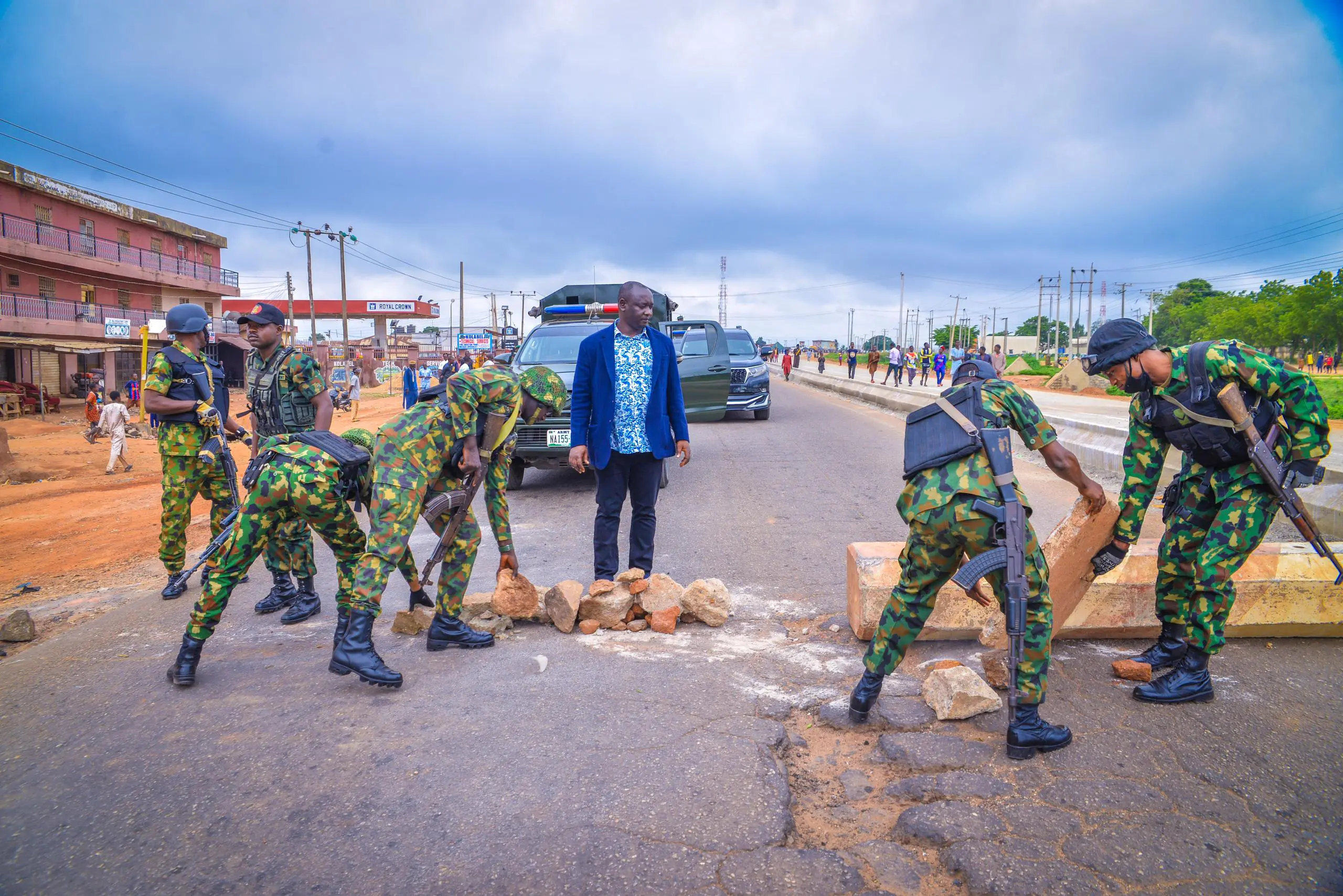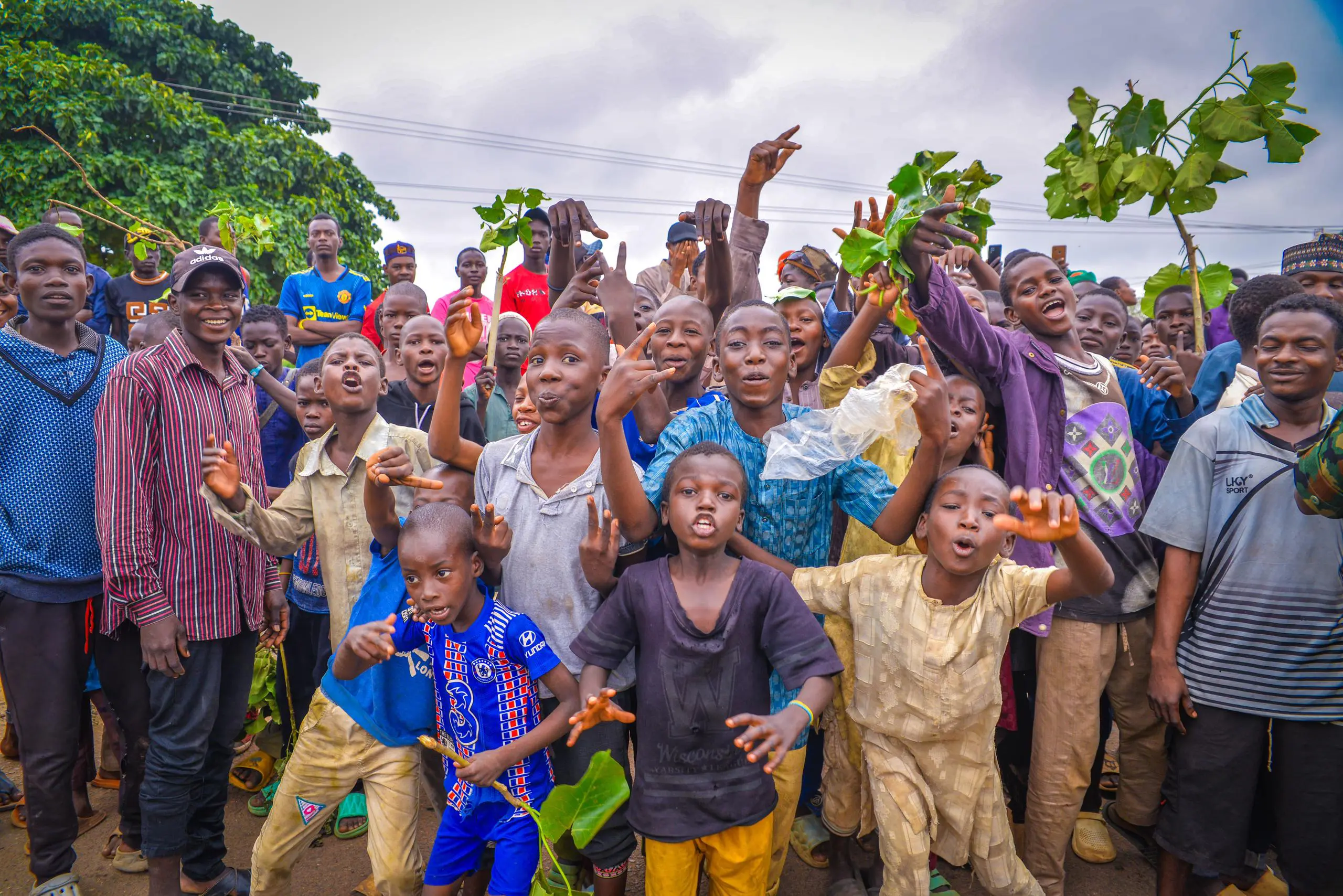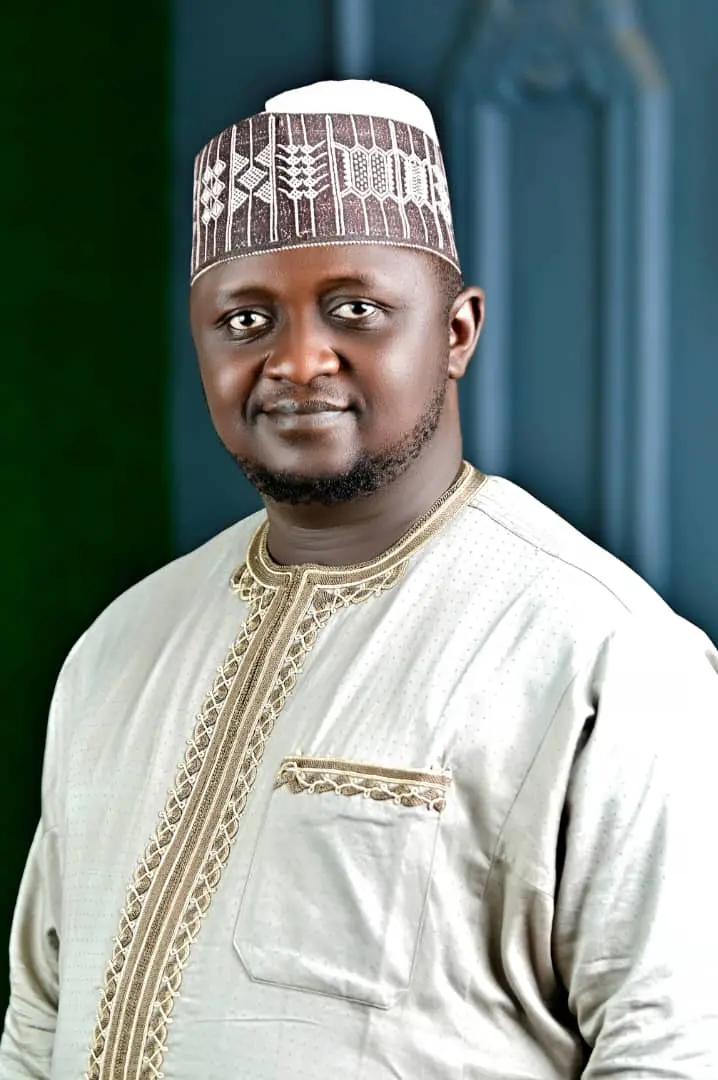As Nigerians across the country continue to take to the streets to protest bad governance and inexcusable hunger, I wish to advise that we apply caution in the exercise of our constitutional right to peaceful protests lest we should lose the nation in our efforts to find it.
Without question, the increasing difficulty in human life circumstances over the years makes a strong case for citizens to revolt. Whether it is the horrendous exploitation of our collective patrimony through wanton acts of corruption, embezzlement, and nepotism by greedy politicians who have somehow found their way to power over time or the failure of successive regimes to ensure the security and welfare of citizens, there is enough provocation for citizens to be enraged.
In fact, why the protest is happening now and not during the reigns of Buhari and El Rufai or how the two administrations at federal and state levels were able to survive eight years in power amidst worsening insecurity that has now turned every highway into kidnappers’ den, thousands of communities into rivers of blood, and Nigeria the poverty capital of the world, without an uprising has remained a mystery.

As a Nigerian and politician from the opposition stock, I reckon that the current hardship experienced by most Nigerians is becoming unbearable and there’s the urgent need to address issues bordering on food prices, electricity tariff, public transportation, agricultural inputs, unemployment, general inflation, security, and fuel prices, among others, necessary for the improved welfare of the people.
However, I differ completely from those who call for or indulge in acts capable of destabilizing the nation, undermining the government, or pushing for regime change under the guise of national protests, and at the expense of our democracy.
As obviously challenging as the times are, there’s the need to pause and reflect on our past and decide whether we want to end the Nigerian experiment or give government a chance to improve governance and make life better for everyone as it appears it has started to do.
Governments’ responses and efforts to de-escalate tensions before and after the commencement of the protests on August 1, 2024 clearly show that governance will no longer be business as usual. The granting of local government autonomy, review of the national minimum wage – though still below a decent living wage, the establishment of a national youth secretariat, concession to sell crude in naira to Dangote Refinery, the launch of the 110 billion naira Nigerian Youth Investment Fund which will provide thousands of young people with business grants/loans, as well as the president’s promise to look into the high costs of living, among other innovations and measures to assuage the sufferings of Nigerians, will require a little time to reasonably impact on the lives of the people.

It is imperative, therefore, to give these reforms a chance or set the stage for a revolution through the ballot, should our sufferings persist beyond that reasonable time. The ballot, NOT violent protests, remains the best and most reliable option to express our anger against bad governance, and 2027 is sure not too long to wait.
As we wait, however, we must also acknowledge the recent gains recorded in the security sector. The appointments of General Christopher Gwabin Musa, from Kaduna State, as Chief of Defense Staff and his counterparts in the army, air force, navy, and the police as Nigeria’s service chiefs and IG of police respectively, and the reappointment of Samuel Aruwan to oversee the ministry of internal security and home affairs in Kaduna state, have combined to open a new page of hope in the war against insurgency, banditry, kidnapping, and other forms of criminality in Nigeria and Kaduna state in particular – even an armchair critic cannot help but admit that our highways are now relatively safer, our communities more peaceful and our displaced persons gradually resettling.
For the first time in a long while, we are witnessing a complete departure from the reactionary approach of the past administrations to precautionary measures that now engage citizens, gather credible intelligence, and ensure timely interventions which often take the war to the terrorists’ and bandits’ hideouts so we do not have to contend them in our communities or roads.
In just a little over one year, over ten bandit and terrorist commanders have been killed, and many more are being targeted for decimation. There’s no doubt that the President’s unwavering support to the security forces and Gen. Christopher Musa’s outstanding leadership of the nation’s military forces are the secrets behind these success stories, and this should give every citizen hope that better days lie ahead.
But getting Nigeria out of the woods and setting it on the wheel of progress would require more than what the president would do or is doing. The 36 state governors and 774 LG Council Chairmen (whose financial autonomy has been secured by president Tinubu) will need to complement the efforts of the FG as some have done to foil or manage the protests in their states.
In Kaduna State, for example, Governor Uba Sani’s approach in managing the protest has been topnotch. His ability to ensure that the people of the state didn’t troop to the streets (until the 5th day of the protest) or allow the enemies of the state to set the state on fire is quite commendable; and in spite of the isolated incident of a clash on the first day of the protest between the police and a few bad eggs around the government house culminating in the needless loss of a few lives, including one policeman, it is nonetheless impossible to dispute the governor’s proactiveness in averting a crisis given Kaduna state’s volatile nature and history of politically-motivated ethno-religious crisis, as well as the plans to create a crisis out of the supposed nationwide protests.
Indeed, there were plans to reduce the state to rubbles using hungry youths-cum-hoodlums in flashpoint areas of the municipal to attack commuters and or people of opposite faith so as to spark reprisals and throw the state into chaos. But the governor, through his commissioner for internal security and home affairs, swiftly mobilized the heads of security agencies in the state who moved to tackle the threats head-on. Various youths and community leaders from Bakin Ruwa, Rigachikun, Maraban Rido, Tudun Wada, Gonin-gora, Mando, etc., were invited to the government house, and the governor, together with the heads of security agencies, pleaded with and extracted commitment from those leaders to ensure no protests were held or roads blocked in or around their domains.
This was followed by an extensive and expanded stakeholders meeting involving all traditional rulers, religious leaders, organized labour, civil society organizations, and representatives of youths and women groups across the state with the governor at the forefront. The government appealed to their conscience and mandated all to shun violent protests.
The result was overwhelmingly positive as much as it was cheering. Even when a few miscreants, mostly teenagers and minors, were lured into various attempts to vandalize assets or block major roads on the first day of the protests, the government resisted calls for the imposition of a curfew at first until yesterday that a curfew was imposed to forestall a possible breakdown of law and order following some looting in and around Kaduna and Zaria metropolis by some hoodlums. Instead, he directed law enforcement agents to bring the situation under control with the state commissioner for internal security moving with troops on surveillance and to remove road blocks and restore order across a few locations where such was recorded.
Senator Uba Sani’s complete departure, too, from the high handed, divisive, and provocative approach of his predecessor to a system that engages and accommodates all, typical of the PDP years in power, has enhanced collaboration and rebuilt trust between the government and the governed. His engagement with stakeholders and citizens alike, across levels, therefore, especially in the wake of the nationwide protests, and not daring them as his predecessor would have done in similar situations in the past, is a testament to this fact. It is, therefore, no surprise that the protest in Kaduna State has been leaderless and also rudderless.
While one may commend Uba Sani for the patriotic and concerted approach in dealing with the issue of nationwide protest in Kaduna State which has saved the state from being ruined, the road to El Dorado as far as the living condition of the people is concerned, is still a long and tortuous one. The governor has a duty to get the concerns of the people of his state across to the president’s desk and collaborate with him to ensure they are addressed. The citizens listened to his plea against violent protests, he needs to return the favour by addressing their legitimate concerns.
He has a duty, together with Mr. President, to ensure that the gains in the security sector that have seen farmers like me return to large-scale production is not only sustained but consolidated by subsidies in fertilizers and other farming inputs. Our moribund storage facilities should be revitalized and additional ones provided to encourage savings for the rainy days as well as reduce avoidable wastages /losses, while tractor and other mechanized inputs should be made available at subsidized rates.
Doing so will boost food production, reduce food prizes, and consequently enhance food security in the state and beyond. It will also open up job opportunities for our youths and retirees because of agriculture’s potential as the largest employer of labour and wealth creator, and ultimately address some of the serious concerns of the people.
The Federal Government must revamp the power sector and reduce electricity tariffs, while governments at state and local levels should make massive investments in rural infrastructure. There should be grants and low interest loans to existing MSMEs that are showing stability and growth, and our refineries should get working again.
Similarly, the government should grant licenses for the operation of modular refineries across the length and breadth of the nation, while the NNPCL should be mandated to supply them with crude. This will boost local production of petroleum products, reduce importation of the same, create jobs for our teeming youths, reduce fuel prices, reduce inflation, and ultimately set the nation on the path of economic recovery and growth. Playing politics with this sector will not help us in any way.
In the final analysis, the silence of the opposition parties and politicians in the face of the greatest threat ever to our democracy and continuous existence of as nation is no longer golden. There’s need for leaders across the board to rise up and call everyone to order. Seeking political capital from the protests or the possible breakdown of law and order will not do anyone any good.
I, therefore, wish both President Tinubu and Governor Uba Sani well in their continuous effort to end the national protests through addressing the legitimate concerns raised by protesters, secure our nation, and rid our communities of terrorists, bandits, and other criminal elements.
We have to have a country and a peaceful one at that to be members of APC, PDP, LP, or some other political parties, or to take over power from the APC. We must, therefore, jettison partisan interest and come together at this critical juncture of our national life. Otherwise, we may never fail to suffer the consequences of a failed state. God forbid.
May God bless, preserve, and cause our dear nation and state to rise above their present challenges. May President Bola Ahmed Tinubu and his lieutenants find the right answers to the concerns of the people and birth us a new nation where unity, peace, prosperity, and justice shall reign.
I also plead with the government to find ways to provide succour to law-abiding citizens whose property were vandalized by protesters to give them a lifeline. This is what every responsible government should do. And may the souls of all those who lost their lives in the protests rest in perfect peace. Amen.
Edward John Auta is a historian, political analyst, and aspirant for the PDP chairmanship in Kaduna State.
Email:autaedward@gmail.com
Edward John Auta: National protests: Government’s proactiveness and silence of opposition parties
